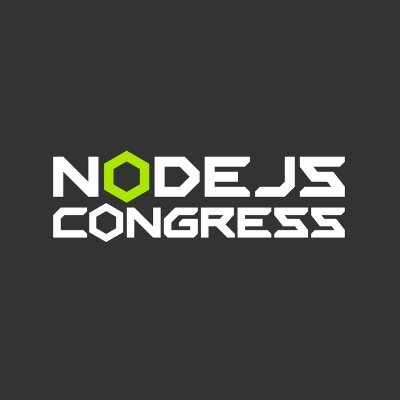Building search into applications can be quite easy. This talk has been really fun for audiences because I often get audience members involved, often building out the code themselves, while they try to stump each other by naming the hardest things to find. The application is hosted in a Code Sandbox, so the audience takes the code home with them. Also, I can do the same presentation with movies, if the organizers prefer.
Game Changer! Building Search Into Your Applications
FAQ
According to Salesforce, 87% of e-commerce shoppers begin their shopping journey in the search bar.
Forrester states that 68% of shoppers will abandon their search if the user experience is poor, indicating the critical role of effective search functionality in retaining users.
Document databases are better suited for handling large volumes of unstructured and semi-structured data, making them ideal for search functionalities where query patterns are not predefined, unlike relational databases.
Apache Lucene is an open-source search engine software library, extensively used by companies like Netflix, Walmart, and eBay. It excels in processing and indexing documents for efficient search operations.
Lucene enhances search by using an inverted index to map tokens derived from document data to their respective documents, improving the accuracy and speed of search results.
Analyzers in Lucene process input text, break it down into tokens, and optimize these tokens for search by removing punctuation, lowercasing text, and more, which helps in accurately mapping search queries to relevant documents.
Using different analyzers, like the standard or keyword analyzer, can significantly change the search results. For example, the keyword analyzer treats the input as a single token, which is perfect for exact matches, unlike the standard analyzer that splits the input into multiple tokens.
Query operators such as regex, phrase, text, and autocomplete allow users to refine and specify their search queries, catering to different search preferences and improving the likelihood of finding the most relevant data.
Custom scoring allows search engines to rank documents based on relevance to the query and other factors, like a document's inherent value (e.g., FIFA scores in a sports database), ensuring that the most relevant and high-quality results appear first.
Video Summary and Transcription
Implementing the right strategies and tools, such as Apache Lucene, can improve search performance and user experience. The choice of analyzer affects search results, and query operators provide various search options. Relevant scoring is crucial for ranking documents based on relevance. Custom scoring can prioritize specific criteria. Consider analyzers, query operators, and scoring methods to optimize the search experience.
1. Introduction to Search Game and Apache Lucene
You've got data and users who need to access it. The search game is about helping users find what they want. Implementing the right strategies and tools, such as a document database like Apache Lucene, can improve search performance and user experience.
Listen up, people! You've got data and you've got users and your users need to access your data. So whether it's Google, whether it's Amazon, whether it's Stack Overflow, Salesforce says that 87% of e-commerce shoppers start their journey in the search bar. And Forrester says that 68% of those shoppers will give up their journey if you provide a bad user experience.
Now this search bar looks simple but on the other side of that search bar are your users and they are not so simple. They don't know what they want. They don't know how to express what they want. They don't know how to spell it. And that's getting them to get what they want is what I call the search game. And when you play the search game right you could take this search bar and you can turn it into this giant goal. A goal so big in fact that your users simply can't miss. They will net everything that they're looking for including the things that they didn't even know that they were looking for. When you play the search game right, that means you get more engagement, more clicks, more users, more likes, more sharing, and more revenue. So then your competitors and everybody who is not you is your competitor.
So I am going to coach you today on how to implement the right strategies and the right tools you'll need to get this. The first thing you need for your proper equipment is a document database. More users when they want your data they're probably searching through volumes and volumes of unstructured and semi-structured data. Now, relational databases are fantastic for tables. Anything that's in a column in a row is great. When you know the query pattern ahead of time, it's great for that. But for search, the performance goes down so you'll want a document data, database.
The next star player you have is Apache Lucene. Apache Lucene is your star player. All the winning teams play with Apache Lucene. Netflix, Walmart, Ebay, it is a battle-tested, open source. It's been around for 20 years. That's why they play it. And you can build your own thing but why would you farm a promising, upcoming player when Messi's already warmed up, ready and hungry to play for you. So Apache Lucene is your star player and its big power play is that it takes that document database and it runs that data through a process called analysis. Analysis is going to take that data, break it down into different tokens depending on the analyzer you use and those tokens are stored in an inverted index. So Lucene uses an inverted index.
2. Search Process and Optimization
When using the standard analyzer in Lucene, searching for 'Manchester United' will yield two tokens: 'Manchester' and 'United'. The choice of analyzer affects the search results, as demonstrated by the keyword analyzer, which returns only players from Manchester United. Query operators, such as regex, phrase, text, facets, and auto-complete, provide users with various search options. Relevant scoring plays a crucial role in search engines, as it ranks documents based on their relevance to the search query. Custom scoring can be used to prioritize specific criteria, such as the overall FIFA score. Consider the choice of analyzers, query operators, and scoring methods to optimize the search experience for your users.
So let's run through this process in a practice play, see how it feels. If I have these four documents with these soccer teams in it and their unique underscore ID field, if I were to look through those documents for Manchester United, it would lowercase everything, remove all the punctuation, I'm left with two different tokens, Manchester and United, using the standard analyzer in Lucene. Those are my two tokens.
So when I look through these documents for those things, my tokens or my terms will map two documents, one in two for Manchester and one in three for United. So my inverted index will hold my tokens or my terms, what documents and other helpful metadata, frequency, position, etc. Now having the right tokens or the right terms can make or break a good search experience for you. So it's important to use the right analyzer to get the right terms.
Now I'm going to show you what I mean in this example. So this is an app that I wrote called Atlas Search Soccer. It uses Atlas Search. In it, I used the FIFA Player Database so you can find lots of different search options to find your FIFA dream team and you can put your own players on there. It'll also show you the code on the queries on how to do that. Now I know it's called football everywhere else in the entire world except the United States, but I already bought the domain name so we're just going to stick with that. So in this one I am looking for players from Manchester United. I'm using the standard analyzer. As you remember, it's Manchester United. So I'm going to get 697 players when I look for Manchester United because it's giving me Manchester United and West Ham United and Manchester City and anything else with either Manchester United. If, however, I change to the keyword analyzer as I'm doing here, I find 33 matching players and they are all indeed from Manchester United because when I pass, this is using the keyword analyzer which takes everything, it keeps the punctuation, it keeps the capital letters, all the casing, and it gives me that one token. So keyword analyzers are fantastic if you're using check boxes.
So your tokens matter which means your analyzers matter. The next thing you need to consider are your query operators, whether it's regex, phrase, text, whether using facets or if you're using auto-complete. This is a way to let your users take their best shot. Every user is different. Every user has a different preference of how they're going to go through things so you want to, in your application, give them as many options as possible. And of course I can't talk about giving your users those best shot at finding your data without talking about scoring. Relevant scoring is so important in search. All search engines are going to grade all your documents based on how well they match the search query and that is called relevance. And it is going to return your documents to you with the score in descending order. So it's going to give you what it thinks the best matches are, the most relevant matches first.
In this example, for instance, I'm looking for Cristiano Ronaldo for my FIFA dream team and I just look for Ronaldo and I get this lovely gentleman first but that's not the Ronaldo I want because it's looking for relevance first. I want the overall FIFA score to be very high in that. So in this one, in the query, I'm going to take the overall FIFA score which is the field in every one of my documents. I'm going to factor it in to my relevance score and now I get Cristiano Ronaldo first. He's very difficult personality-wise but he's very good and I want him on my dream team. So with that, you want scoring matters, custom scoring because you want everything right, think about your data, think about your user interface, think about your tokens and I'm not clicking through, I had such a nice interactive, oh there it goes. Think about your tokens, goes in, pick your analyzer accordingly that goes in your index inside of your queries and all of that will be served up to your users so they have their best shot at finding your data before they find it at your competitors.
Check out more articles and videos
We constantly think of articles and videos that might spark Git people interest / skill us up or help building a stellar career
Workshops on related topic
In this workshop you'll learn how to develop APIs with Fastify and deploy them to the Platformatic Cloud.
Appflow is the cloud mobile DevOps platform built by Ionic. Using a service like Appflow to build React Native apps not only provides access to powerful computing resources, it can simplify the deployment process by providing a centralized environment for managing and distributing your app to multiple platforms. This can save time and resources, enable collaboration, as well as improve the overall reliability and scalability of an app.
In this workshop, you’ll deploy a React Native application for delivery to Android and iOS test devices using Appflow. You’ll also learn the steps for publishing to Google Play and Apple App Stores. No previous experience with deploying native applications is required, and you’ll come away with a deeper understanding of the mobile deployment process and best practices for how to use a cloud mobile DevOps platform to ship quickly at scale.
Table of contents:
- Next.js overview and getting started with Next.js
- API Routes with Next.js & building a GraphQL API
- Using the Neo4j GraphQL Library
- Working with Apollo Client and GraphQL data fetching in Next.js
- Deploying with Vercel and Neo4j Aura
Table of contents: - How to set up a serverless project with TypeScript and CDK - How to write a testable Lambda function with hexagonal architecture - How to connect a function to a DynamoDB table - How to create a serverless API - How to debug and test a serverless function - How to organize and grow a serverless application
Materials referred to in the workshop:
https://excalidraw.com/#room=57b84e0df9bdb7ea5675,HYgVepLIpfxrK4EQNclQ9w
DynamoDB blog Alex DeBrie: https://www.dynamodbguide.com/
Excellent book for the DynamoDB: https://www.dynamodbbook.com/
https://slobodan.me/workshops/nodecongress/prerequisites.html



























Comments